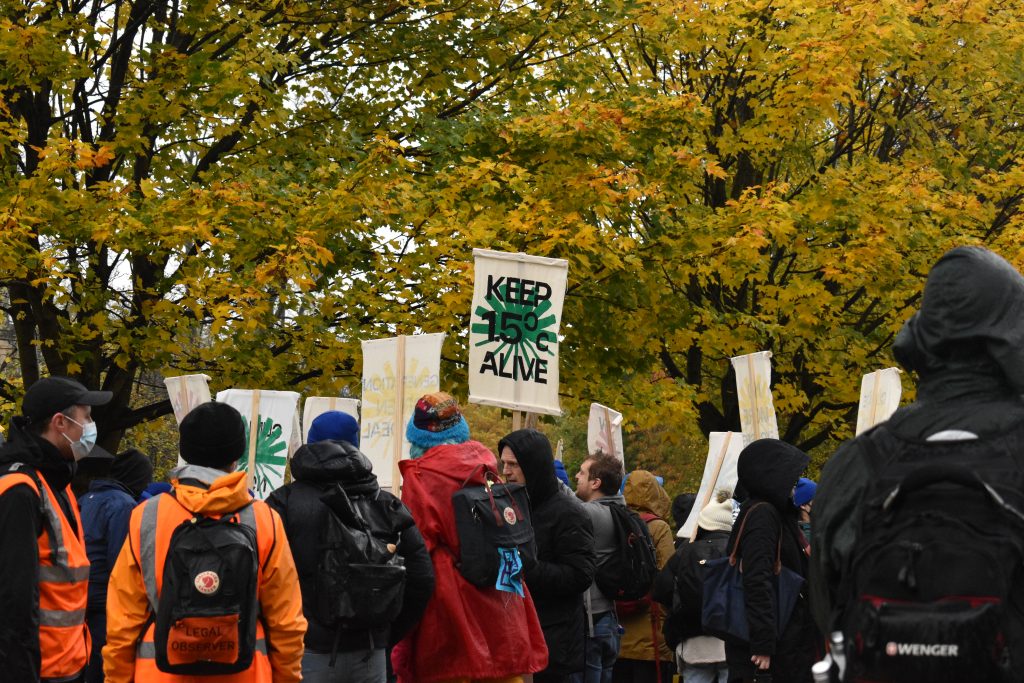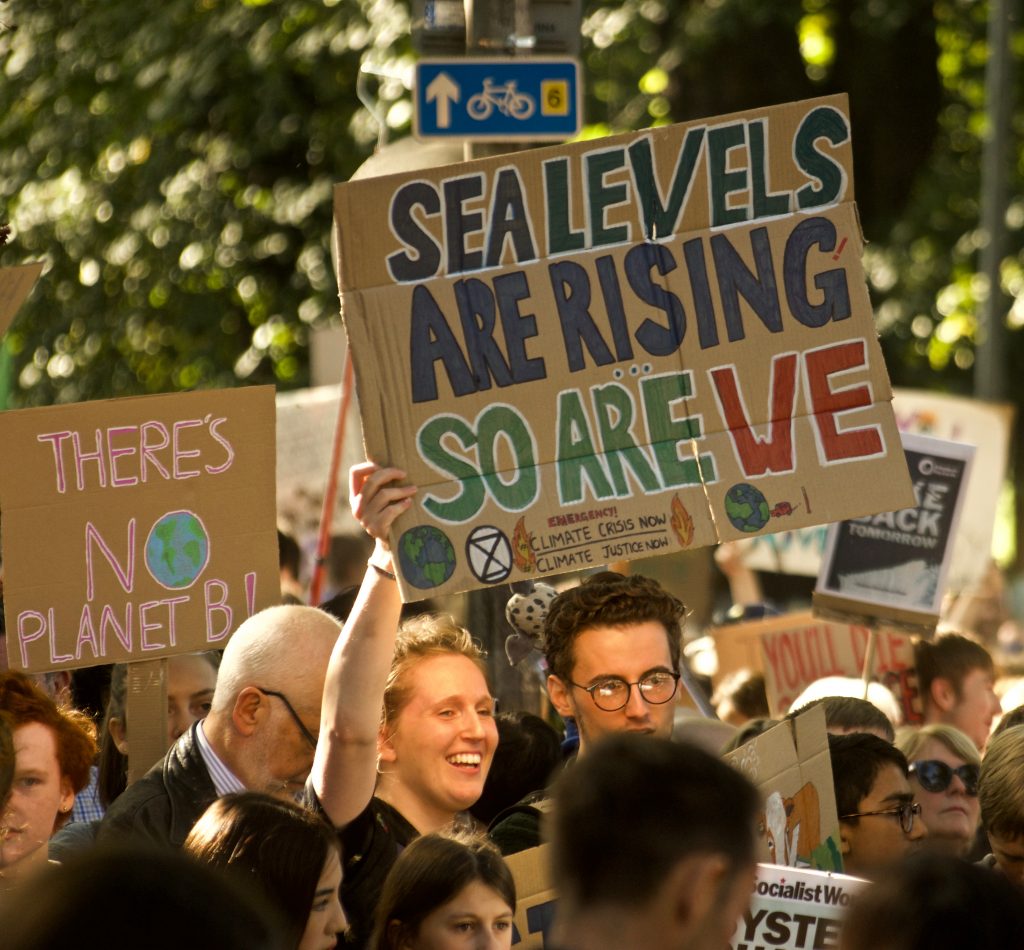
Shoring up Nicola Sturgeon’s climate legacy
In February, Nicola Sturgeon announced her resignation as First Minister of Scotland and leader of the SNP. She took up these roles with little if anything in the way of a track record on the environment, but in the eight years since, she has put tackling the climate crisis high on the list of the Government’s priorities. While the rhetoric has not always been matched by action, her personal engagement was extremely important in pushing forward this vital work.
As her successor, Humza Yousaf must understand that tackling the climate emergency is the defining challenge of the era, and seek to build on her work in this respect. In this article we look at some of the progress that has been made under Sturgeon’s leadership, and where more action is urgently needed.

Stronger climate targets; weak delivery plans
A key win for the climate movement in recent years was securing the passing of the Climate Act in 2019 which introduced substantially stronger targets including a commitment to net zero emissions by 2045, but more crucially, strengthened the targets ahead of 2030. This was due in part to the re-energising of mass movements exemplified by the youth climate strikers and XR, horrified and inspired by the powerful science on what breaching the critical 1.5C threshold means for life on earth.
While the stronger targets are welcome, Sturgeon’s Government has failed to grasp the scale of transformation needed to meet climate targets, and failed to put forward a credible plan to deliver on them. Under Sturgeon’s watch, Scotland has missed three of the last four targets. The Government’s continued over-reliance on speculative technologies, like carbon capture and storage and hydrogen, mean that the pattern of Scotland missing emissions targets is set to continue, without a new plan prioritising real solutions that can be implemented immediately.

Nicola Sturgeon has always been keen to project Scotland as a climate leader on the world stage, and her leadership on ‘loss and damage’ undoubtedly helped secure a global finance mechanism to deliver badly needed reparations. However, if we don’t meet emissions reductions at home, we fail to do our fair share of climate action, which all nations must do to put the world on a path to a climate safe future.
Now Humza Yousaf has been elected as the new First Minister, he must prioritise driving forward urgently needed changes which can tackle the cost of living crisis whilst cutting climate pollution. This means making every home warm and well insulated, supercharging public transport, transforming our energy system, and moving towards a circular economy.
Fossil fuel phase out
Fossil fuel phase out in this decade is essential if we are to do our fair share of keeping global temperatures under the critical 1.5C threshold. Over the last several years, we have seen the end of coal in Scotland, and Sturgeon has begun to steer her party away from oil and gas: no mean feat for a party whose long-standing rallying cry has been ‘it’s Scotland’s oil’.

Crucial decisions have been taken, from the 2017 ban on fracking, to the pre-COP26 announcement that the Scottish Government no longer supports drilling every last drop of North Sea oil. Sturgeon has spoken out against the Cambo oil field, and the current energy strategy consultation asks whether the Scottish Government should oppose new licensing and support a faster phase out than the natural decline of the UK’s oil and gas.
The new leadership must set a clear end date for oil and gas, to provide certainty for workers, communities and the sector, rule out the new gas power plant at Peterhead, and focus on phasing out fossil fuel use in our energy system.
Just transition at the heart of climate narrative
In centreing the concept of just transition for energy workers and communities at the heart of the decarbonisation narrative, Scotland is genuinely breaking new ground. A just transition is essential if we want to move away from fossil fuels in a way that acts as a catalyst for a fairer society.
Sturgeon’s Government enshrined just transition principles in law, appointed a Minister for Just Transition, committed to just transition plans for regions and sectors and established a Just Transition Commision with an economy-wide remit. While we are yet to see a just transition being realised on the ground, the framework is in place to enable one, and crucially to hold the Government to account on its delivery.
Plans for agriculture, transport and buildings are expected to be unveiled in the coming weeks. It sets out robust delivery plans, showing how just transition outcomes will be met, how the necessary investment to transform our economy will be marshalled, and what measures will be put in place to support workers and communities to make the transition.
Changing society for people and the planet
Under Sturgeon, Scotland joined the Wellbeing Economy Governments group, along with Canada, Finland, Iceland, New Zealand and Wales. This small band of nations expressed the desire to take a more holistic view of economic success, looking beyond GDP and growth for growth’s sake to measure progress in relation to broader environmental, social and economic priorities.
Though this ambition is reflected across Scottish Government language, the National Strategy for Economic Transformation merely pays lip service to the idea, relying instead on the conventional economic thinking that is driving the climate and nature breakdown, and the cost of living crisis.
Furthermore, there has been a notable failure to champion legislation to move to a more circular economy, with repeated delays and real concerns that it will not begin to address the huge climate impact of Scotland’s consumption habits. When you consider that over 80% of our carbon footprint comes from the goods and services we consume – many of which are made outside of Scotland – this is a key missing piece in our efforts to do our fair share of global climate efforts. Humza Yousaf must ensure that the bill is brought forward this term, and that it includes targets to reduce our material and carbon footprints.
In response to the stripping away of rights and protections anticipated following the Brexit vote, Sturgeon has long championed legislation to enshrine human rights in Scots Law. Crucially, the Scottish Government has committed to include the right to a healthy environment within these protections. This would lead to a step change in the way that public bodies and private companies are held to account over harm to human health and the environment. We are yet to see this (again, much delayed) legislation come forward – Sturgeon’s successor must commit to continuing with this vital reform.
People power works
None of the progress outlined here would have been made if it wasn’t for the powerful efforts of campaigners, communities, NGOs and ordinary folk who put the pressure on Nicola Sturgeon and her Government over the past eight years. The climate movement has grown massively in that time, and greater collaboration with trade unions and human rights organisations has also helped bring results. We will continue to use the power we have built together to push for action across these issues, and we’ll make sure Humza Yousaf hears us.

Change is happening, and it’s the responsibility of our governments to make sure that it happens in a way that leads to a better future for everyone, here in Scotland and around the world.
This article was first published in our members’ magazine, What on Earth. You can join as a member here.
